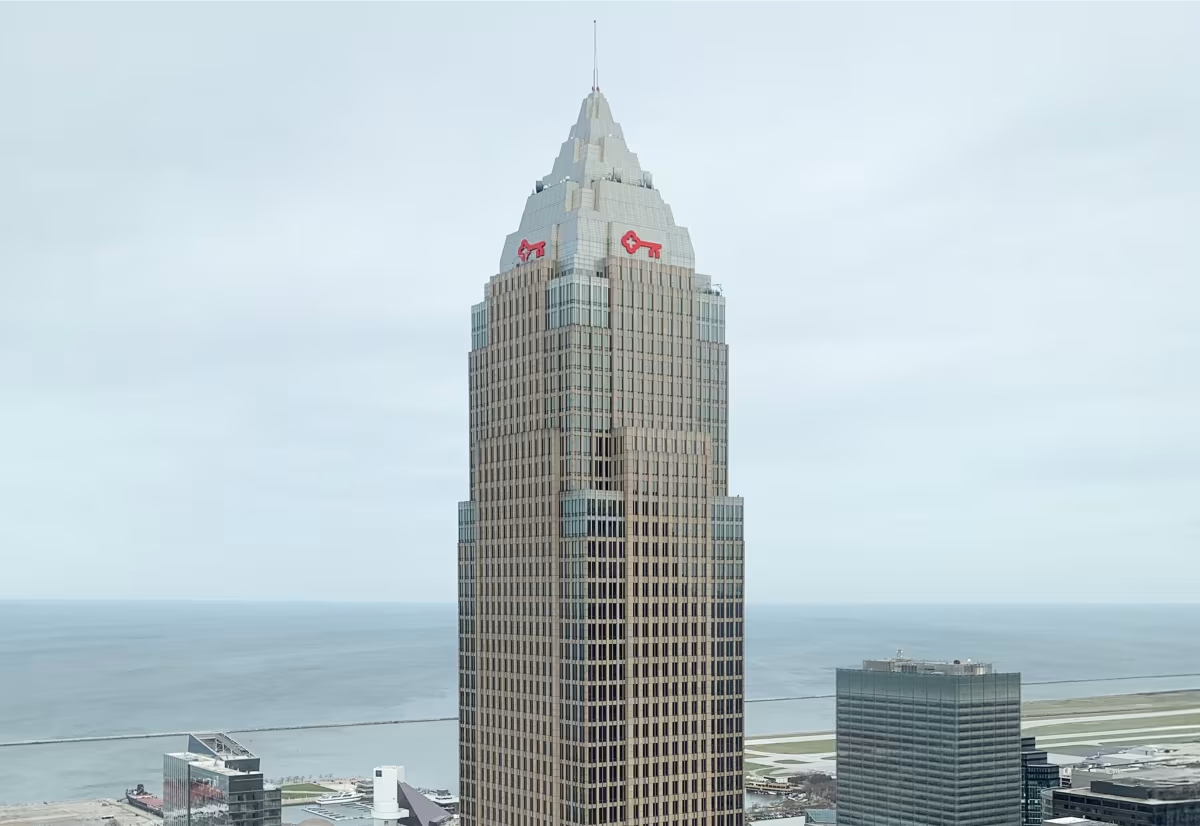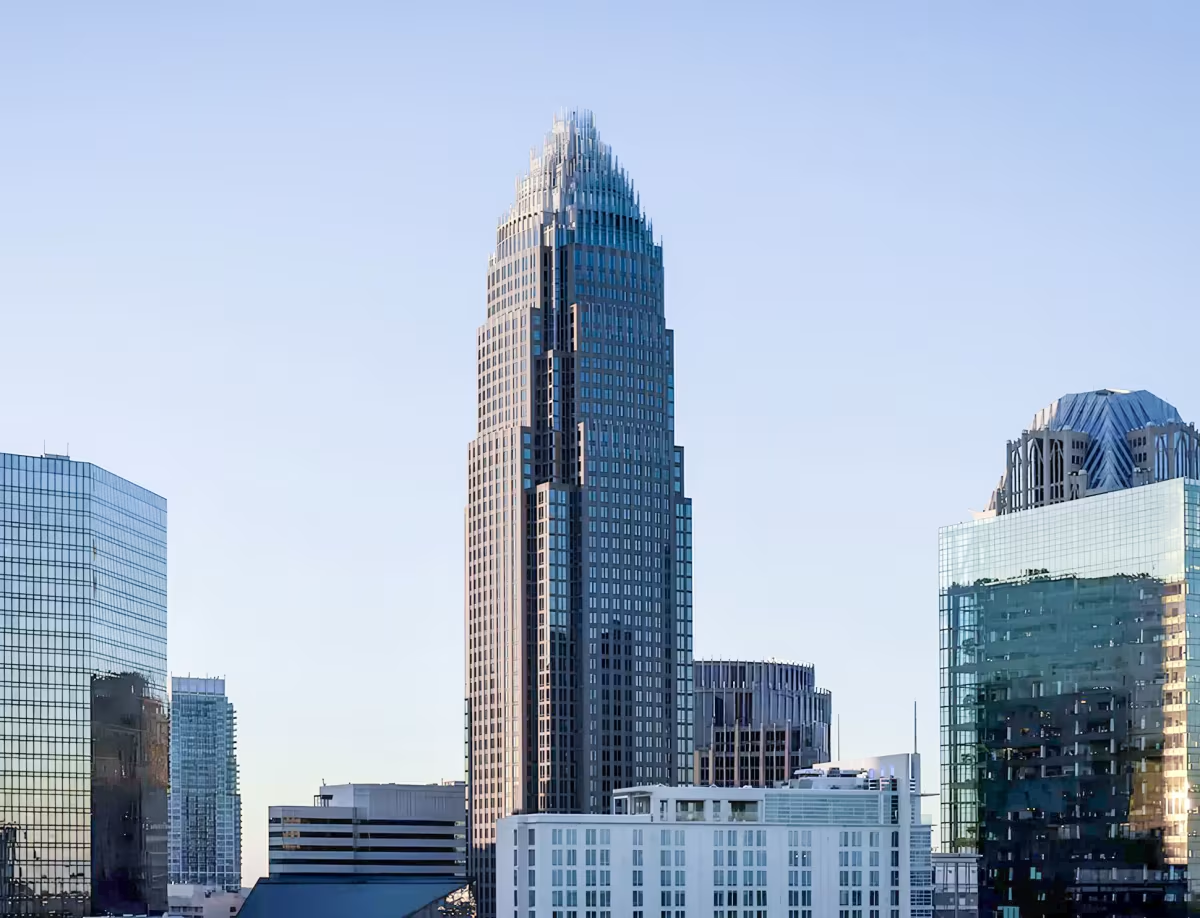Key Tower vs Bank of America Corporate Center


Comparing the Key Tower and the Bank of America Corporate Center is an interesting exercise, because even though they are located in different cities (Cleveland, OH and Charlotte, NC), both were designed by César Pelli & Associates and finished within just one year apart. This gives us the chance to see how the same architect's ideas were expressed in different urban contexts almost simultaneously.
Height & Size
The Key Tower is clearly the larger tower of the two, both in terms of height and number of floors. It rises to 948ft (289m) with 62 floors above ground, while the Bank of America Corporate Center reaches 869ft (265m) with 60 floors above ground.
Despite being taller and having more floors, Key Tower has less total built-up area than Bank of America Corporate Center.
Of course, each project may have faced different briefs or regulatory constraints, which we don't really know about and could also explain the outcome.
Architectural Style
Both the Key Tower and the Bank of America Corporate Center were designed in line with the aesthetic conventions of the Postmodernism style.
Both buildings were completed when the Postmodernism style was already past its peak. This makes them feel like late echoes of the movement, more reflective of continuity or nostalgia than of cutting-edge design at the time.
Uses
Both the Key Tower and the Bank of America Corporate Center were designed to serve as commercial towers, and that has remained their main use since their completion, serving similar roles in the urban fabric.
The Bank of America Corporate Center also provides 1200 parking spaces.
Structure & Facade
The two buildings opted for different structural and facade solutions.
The Key Tower uses a Frame system, which relies on a regular grid of columns and beams to sustain its weight, while the Bank of America Corporate Center uses a Framed Tube In Tube system, that combines a strong central core with a perimeter tube of columns.
And when it came to the facade, the Modular went with a Modular facade, which employs prefabricated panels, often mixing solid surfaces with smaller windows, while the Bank of America Corporate Center opted for a Curtain Wall facade, that uses a lightweight glass curtain wall hung from the structure.
| Key Tower | Bank of America Corporate Center | |
|---|---|---|
| César Pelli & Associates | Architect | César Pelli & Associates |
| 1988 | Design Ended | 1988 |
| 1989 | Construction Started | 1989 |
| 1991 | Year Completed | 1992 |
| Postmodernism | Architectural Style | Postmodernism |
| Commercial | Current Use | Commercial |
| 62 | Floors Above Ground | 60 |
| 289 m | Height (m) | 265 m |
| 116127 | Built-up Area (m²) | 155613 |
| Frame | Structure Type | Framed Tube In Tube |
| Reinforced Concrete | Vertical Structure Material | Reinforced Concrete |
| Concrete And Steel | Horizontal Structure Material | Reinforced Concrete |
| No | Facade Structural? | Yes |
| Granite, Glass | Main Facade Material | Granite, Glass |
| Turner Construction Company | Main Contractor | McDevitt & Street Company |
| Richard E. Jacobs Group | Developer | Lincoln Properties Company |
| Otis Elevator Company | Elevator Company | Otis Elevator Company |
| Skilling Ward Magnusson Barkshire | Structural Engineer | Walter P. Moore |
| James Rosenquist, And David Salle | Collaborating Artist | Ben Long |
| OH | State | NC |
| Cleveland | City | Charlotte |
| 127 Public Square | Address | 100 North Tryon Street |